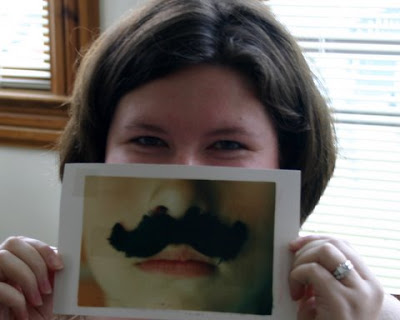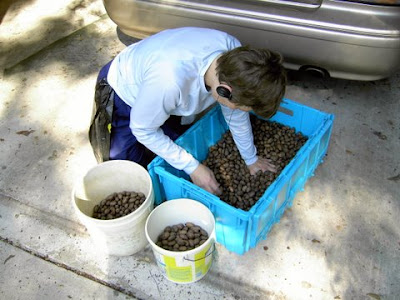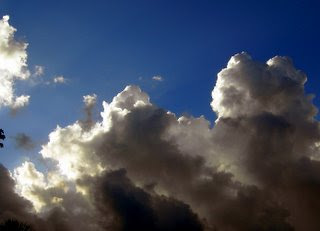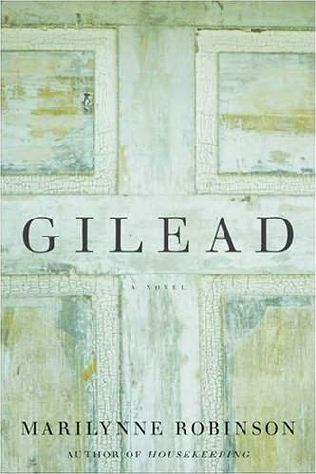
I went to the AWP Conference last week.
I wasn’t going to go at first because I don’t much like conferences. But I started ticking off the reasons I should go: I had published two books of poems in 2007, and I had the chance to do book signings for both, and I was looking for an agent for the novel I’m working on and somebody told me that agents at the AWP were as thick and friendly as kittens. So I paid my $200 membership/registration and booked my $300 airplane ticket, and packed up my books and set off.
The conference turned out in a lot of ways not to be the conference I had imagined it would be.
I was all fired up about seeing and hearing some of my favorite writers, but circumstances way-laid me or way-laid them:
A. S. Byatt got really sick so she didn't read. Louise Gluck broke her wrist so she didn't read. E. L. Doctorow didn't show up so he didn't read. Martin Amis and John Irving were on at 830 pm on different evenings. They did read but I was in bed by then and didn’t hear them read. Frank McCourt and Billy Collins and Cynthia Ozick were all reading at the same time while I was watching John Surowiecki’s great one-act play “My Nose and Me” (A TragedyLite or TradiDelight in 33 Scenes) about a nose that gets skin cancer.
.
Then there were all the events that I screwed up because I got the times wrong:
Stuart Dybek's talk about Richard Yates, Carolyn Forche's reading from her new book, Joyce Carol Oates' reading from whatever she read from, Marian K. Shapiro's book signing, the Blood to Remember: American Poets on the Holocaust reading, a panel on how writers use memory.
And that list goes on and on.
Then there were all the events I went to that I wished I hadn't:
--one well-known poet reading his flat poems about Asia
--an older poet who didn’t seem to know much about grief and faith reading poems about grief and faith
--another older poet reading poems about national security and the homeland etc that wanted to be ironic and satirical but weren't.
But mostly what I did was wander around the three floors of book stalls trying to find the next session.

When I wasn't doing that, I was sitting at either the Steel Toe Books table or the Finishing Line table. I spent a lot of time at those tables, and really that time was one of the highlights of the conference. There were 8000 writers at the conference, and amid all that talk and scurrying a guy can get worn down shorter than a pencil nub unless he can find some place to sit and take life and writers as they come--one by one.
I did that at the Steel Toe table and the Finishing Line table.
I met some nice people at both of them and had good conversations about books and writing: I talked to Leah Maines, Katie Hae Ryun Leo, Dale Sprowl, Elizabeth Bradford, Bill Zavatsky, Robert Cooperman, J. C. Todd, Amy Groshek, Sean Conrey, Jason Lee Brown, Mary Biddinger, Lisa Siedlarz, Karen Zabarowski Duffy, and the essential Tom C. Hunley -- and I sold and signed some books too!
And there were some other moments that I wouldn’t have missed:
Really, I would go again just for the goof of going up an escalator and watching Billy Collins decide between buying some book that I can't identify from 20 feet away and some other book I can't identify no matter how hard I try.
Or how about when I went up to some famous poet and told him I was a friend of a friend, and he thought I was the guy who was supposed to take him to his next session. He started following me and then when he realized that I didn't know where he was supposed to go, he had to figure out where he had been. It wasn’t easy.
Or how about when I saw Joyce Carol Oates being smuggled out of the Hilton Hotel in what seemed like a disguise. It was a floor-length red/maroon plaid cloth coat (what used to be called a maxi) and a matching floppy hat. It was the same shape as the one Ingrid Bergman wore in
Casablanca, but a totally different color/pattern. Wilder by half!
Or how about running into one of my favorite people, the poet Charles Fishman, and having a funny conversation with him about pretzels.
Or how about when I had that enormous bowl of Chinese vegetable and noodles soup with my Valdosta friend Marty Williams.

Or how when I saw two old friends I hadn’t seen in too long: Lola Haskins and Gray Jacobik.
That was the best part.

 Ari, Michael, and John had to get back to Valdosta, so they got into Ari's little red car and drove.
Ari, Michael, and John had to get back to Valdosta, so they got into Ari's little red car and drove.















































